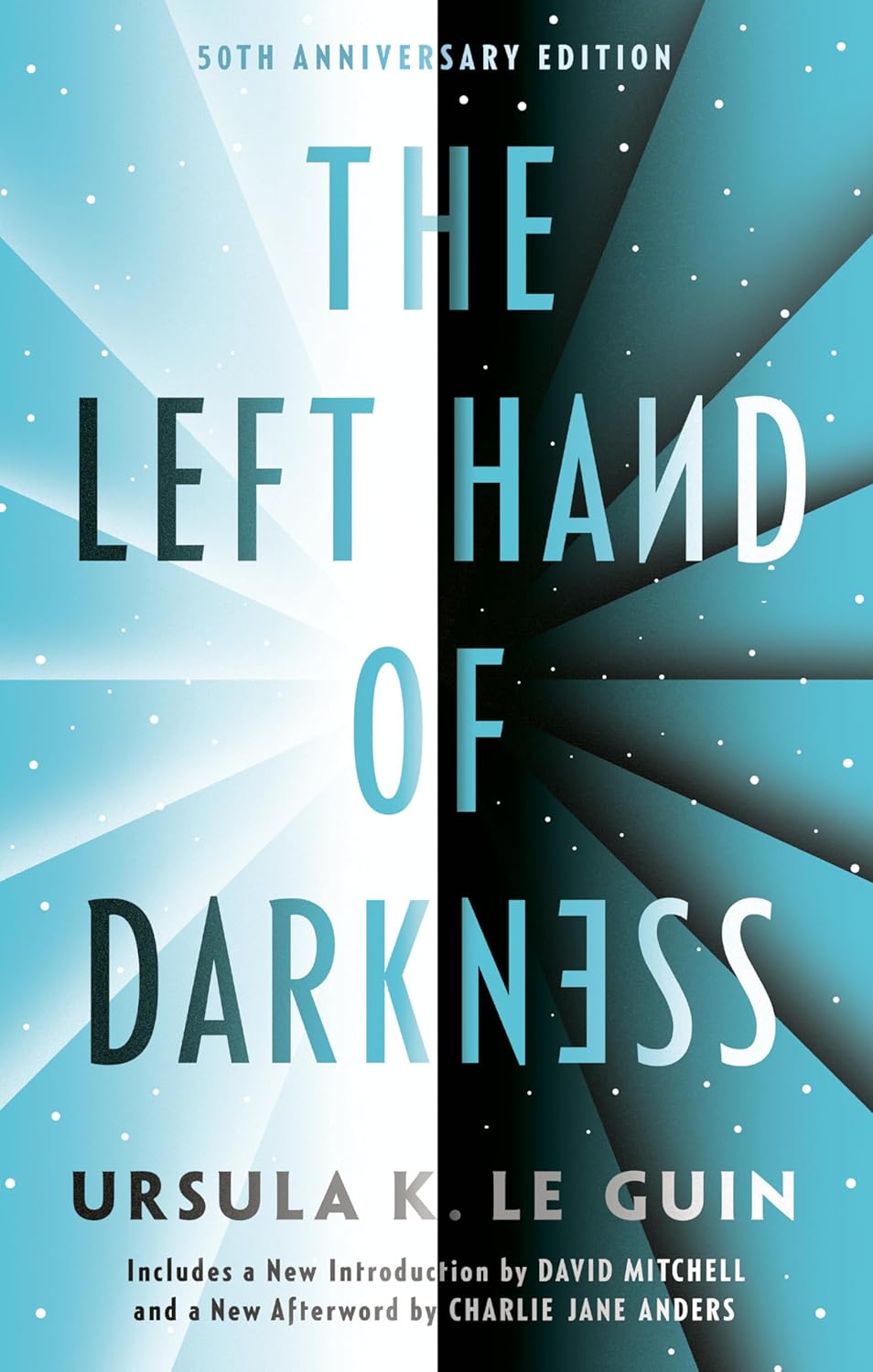The Left Hand of Darkness

Review
The Left Hand of Darkness, by , is her Hugo and Nebula award-winning novel about the planet of Winter. It follows Genly Ai, an envoy from the Ekumen, as he attempts to bring this androgynous world into galactic civilization.
Genly Ai is a human envoy sent from the Ekumen. The Gethenians are human but modified to be hermaphroditic, a characteristic that shapes their entire civilization. The story is broken in three distinct parts:
-
In the first part, Genly lives in Karhide where he—under the advisement of the vizier Estraven—tries to convince the King to join the Ekumen. This leads to Estraven being banished as a traitor and Genly traveling to Orgoreyn.
-
The second part follows Genly in Orgoreyn, a nation modeled after the Soviet Union. While initially impressed by their organization, he soon discovers their darker side when he’s detained by the secret police and sent to a gulag.
-
The third part chronicles Estraven’s rescue of Genly and their desperate escape across a glacier back to Karhide.
The narrative is primarily from Genly’s perspective, interwoven with Gethenian myths, reports from earlier observers of Winter, and excerpts from Estraven’s journal. Through Genly’s eyes, we see someone struggling to understand a society that defies his rigid gender expectations—he constantly characterizes the androgynous Gethenians as either masculine or feminine, unable to escape his own cultural framework. The inclusion of Estraven’s journal provides a wonderful counterpoint, often describing the same scenes from a Gethenian perspective, highlighting just how much Genly’s bias shapes his understanding of their world.
The Left Hand of Darkness is my first experience with ’s work, and it wasn’t what I expected. Having just read much of ’s the Culture series, I was misled by Genly’s role as Envoy and his interactions with political leaders into thinking the main conflict would center on the territorial dispute between Karhide and Orgoreyn over a fertile valley. Instead, the book focuses on exploring the civilizations through Genly’s eyes as he struggles with his own gendered, sometimes misogynistic viewpoint while trying to understand an androgynous people.
The book reminds me of Flowers for Algernon: both are acclaimed, award-winning novels that depend heavily on readers forming emotional connections with the characters and feeling the impact of their struggles. Both use their stories as lenses to examine aspects of our own world—Algernon explores the treatment of the mentally handicapped, while The Left Hand of Darkness examines gender roles. And like Algernon, The Left Hand of Darkness didn’t affect me as deeply as I’d anticipated.
There are also a lot of parallels with ’s Childhood’s End as well. Both books examine first contact with a peaceful, patient “alien”. Both weave together telepathy and mysticism with scientific elements. And both explore how societies respond to major, fundamental changes: ’s work looks at how a civilization reacts to moving beyond the gender binary, while ’s examines humanity’s evolution into something completely new.
Still, certain scenes left lasting impressions: Genly’s transportation in the truck to the gulag, and his and Estraven’s escape across the ice. ’s writing is haunting, sprinkled with insights like:
It is a terrible thing, this kindness that human beings do not lose. Terrible, because when we are finally naked in the dark and cold, it is all we have. We who are so rich, so full of strength, we end up with that small change. We have nothing else to give.
I’ll likely explore more of ’s books in the future, now that I have a better idea of what to expect.